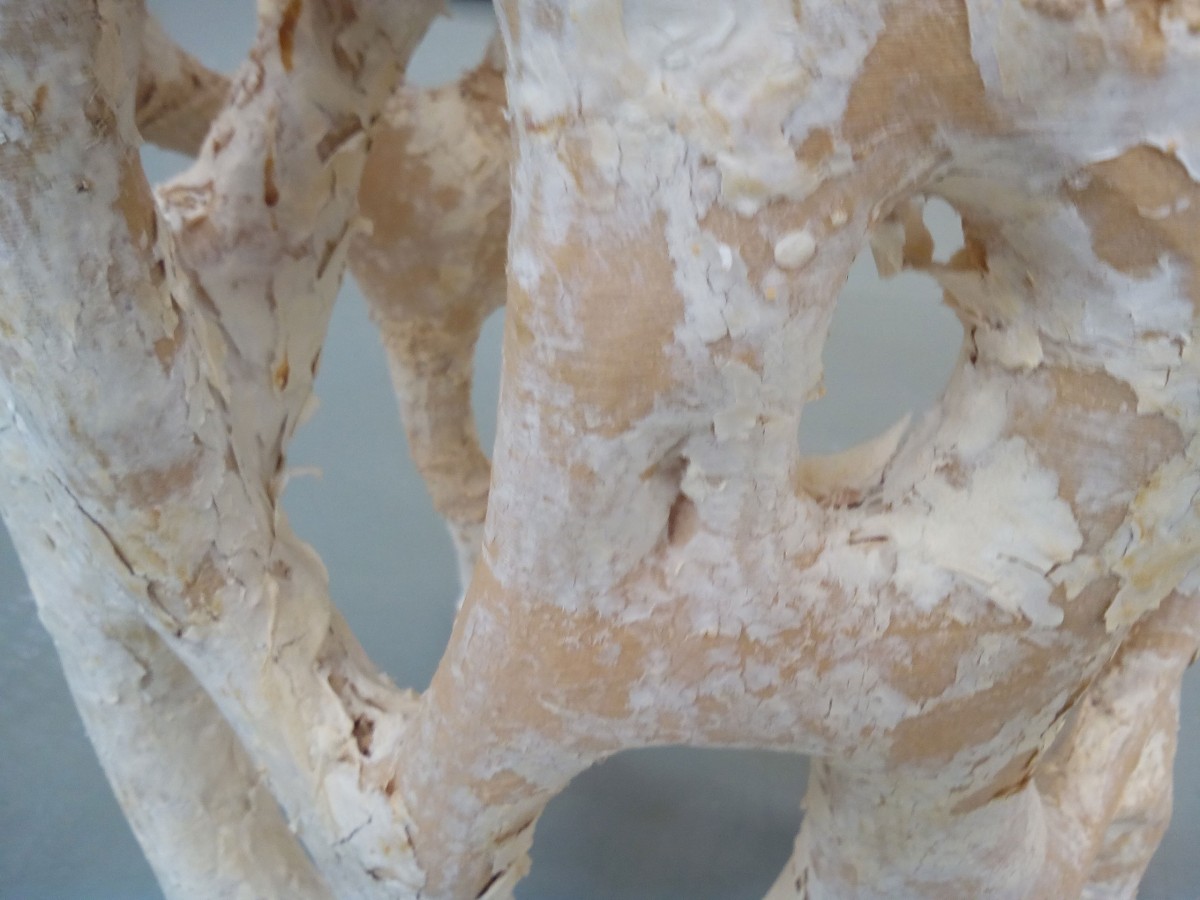
# 0014
Mycellium Project. Stool II.
Transforming Practice, Individual Thing, Common, Polymers, Weeks
Socio-cultural Data
Present Uses
Eric Klarenbeek and Maartje Dros (Studio Klarenbeek & Dros) first started experimenting 3D-printing of mycelium — fungal root-like structures — in 2011 to provide alternatives to the synthetic and bio-plastic materials frequently used in this fabrication process. Waste straw is mixed with fungal material, printed through special delivery heads; then the structure is placed in an incubator to grow. On drying the fungal composite hardens. Return it to a moist environment and the stool will decompose releasing nutrients back to the local environment. This is circular low energy, bio-fabrication at ambient temperatures that, potentially, can be implemented anywhere the right growing conditions are found.
Technical Data
Class of Material
Polymers
Bio-temporal-geographical Data
Residence time (How long does the matter/material/artefact stay in an unaltered state in the location/context/system before it decay?)
Weeks
How does the item affect the environment in which it exists?
Nourish it
Ontological-cosmological Data
tension